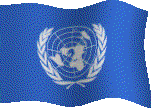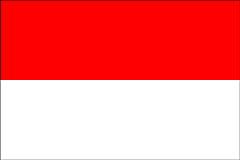What set Rider’s team apart was the “caliber of professionalism” it brought to the event, says Head Delegate Rebecca Grossman ’14, a political science and global studies major who has participated in the event all four years she’s been at Rider.
“We tie the model U.N. team into practical, real-world skills the team members will have to know after they graduate,” she says. “We’re good at playing to each individual strengths, and we help everyone find their niche.”
On April 15 the team held a teach-in at the University, where members shared their experiences and started recruiting for next year.
Grossman, who has applied to the Peace Corps and hopes to work with children internationally, called her experience with Rider’s Model U.N. team the highlight of her college career. She’s leaving a team that has a history of representing countries prone to controversy, such as Syria, Iran and Israel. This year, it wanted to represent Egypt, which was upended by a revolution in 2011 and continues to seek stability. “If you can adopt a country’s position that’s different than your own, it’s more of a learning experience,” Grossman says.
She adds, “Indonesia was on the bottom of our list.” But the team embraced the budding nation, scrutinizing its justice system and economic life as it prepared for the conference. Knowing what topics will be addressed at the conference ahead of time, the team members wrote position papers over winter break and revised them over the course of the semester.
The conference is essentially a simulation of the U.N. with students acting as diplomats on different committees, which range in size from 20 to 450 people. Grossman estimates that about half of the competition came from schools outside of the United States, including Europe, Asia and Africa.
“You meet so many people, network so much and bond with the team,” says Grossman, who hopes to come back next year as an alumni advisor. “It’s taught me so much about myself."


